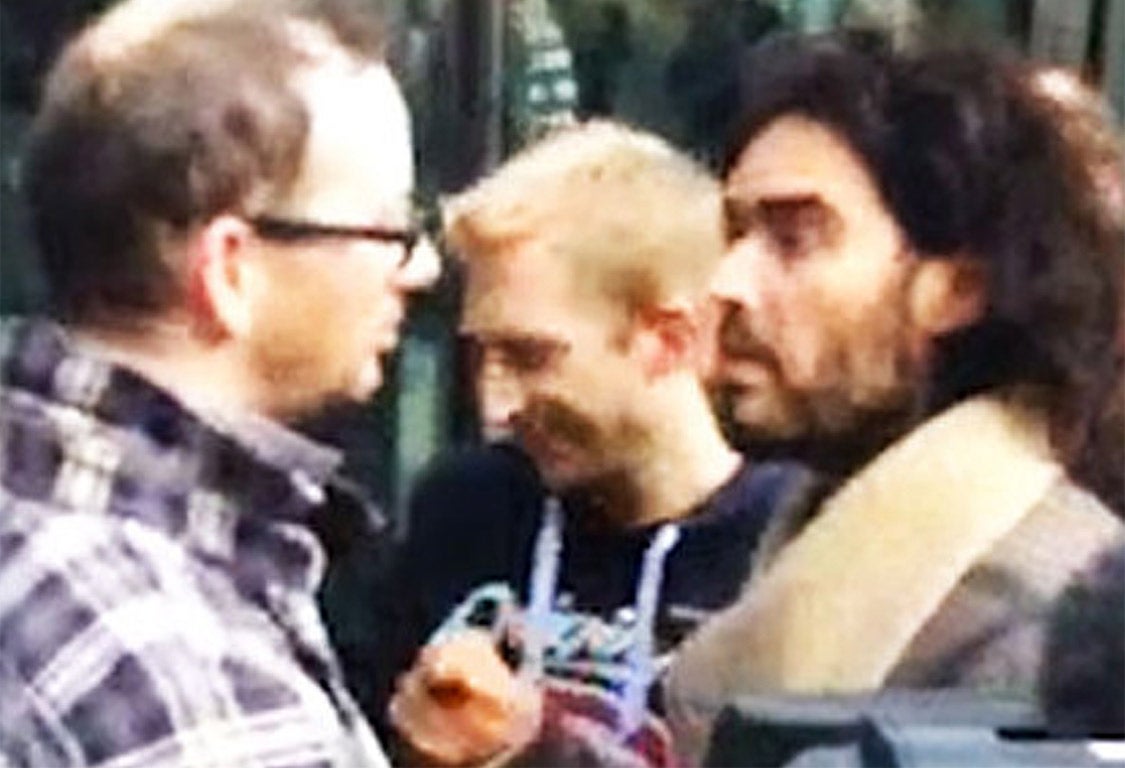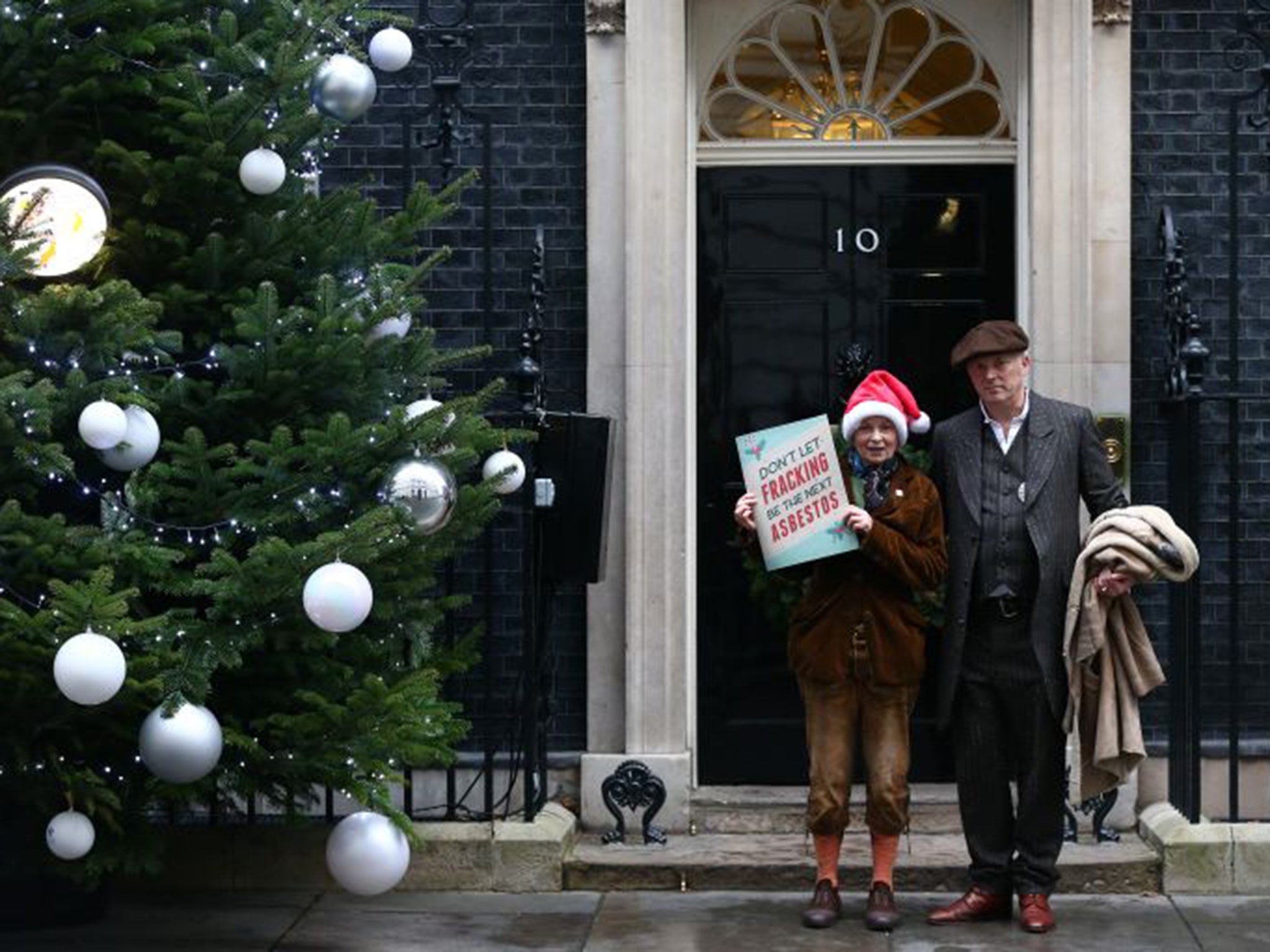Question: What factor unites the poet and man of letters Siegfried Sassoon, the French novelist Emile Zola and the business analyst Joseph Kynaston Reeves, whose somewhat belligerent likeness appeared in several national newspapers last week? The answer, curiously enough, is that they are all exponents of that age-old communications tool, the open letter. Naturally, there are distinctions: Sassoon, by way of a statement to his commanding officer, questioned the British government's handling of the First World War; Zola went so far as to address the President of France in connection with the Dreyfus affair; whereas Mr Kynaston Reeves' principal grievance seems to have been that Russell Brand's camera-strewn stake-out of the Royal Bank of Scotland's London office put a chill on his lunch-time paella.
Of course, there is nothing quite so relative as activism. But, as open letters go, Mr Kynaston Reeves's was a real wowser, a quite stunning example of epistolary demotic. Not for him the ironic suavity of those collections of humanists who regularly harangue newspaper letters pages about the prevalence of religious assemblies in schools. No, Mr Kynaston Reeves called the despoiler of his lunch-box a "school bully", described his behaviour as "f***ing aggressive" and summarised the protest – intended to challenge staff over pay and bonuses at the state-owned bank – as the "puerile and self-aggrandising antics of a prancing multimillionaire". Mr Brand, to his credit, offered to replace the paella, which is, at any rate, a more emollient line than the government took with Siegfried Sassoon.
If Mr Kynaston Reeves has collected any reward for this principled stance, it is his newfound status as a footnote in a branch of media history that goes back to biblical times. What, after all, are the epistles of St Paul if not open letters to Christian communities around the Middle East? Or papal bulls? Or Martin Luther's assaults on the Catholic church? Or Dickens's public severance from his wife? The Victorian political scene is full of senior figures "letting it be known" what they feel about upstart rivals or backsliding colleagues, or sneakily allowing quiet words to intimates into the public arena. Trollope's The Prime Minister (1876) has a characteristic episode in which the Duke of Omnium, desperate that his conniving duchess shan't interfere in a by-election staged in a borough where the electors traditionally vote for the ducal nominee, writes a letter to his agent suggesting that the free and independent electors of Silverbridge should plump for whom they like in the knowledge that the note will be printed in the local paper.
Although the duke heads up a Liberal-Tory coalition, for some reason, political open letters nearly always hail from the left. Perhaps Conservative politicians are too polite to harangue their parliamentary leaders, or too pessimistic about their chances of success. As a teenage reader of the New Statesman in the late 1970s, one grew used to increasingly plaintive entreaties in which "Dear Harold" or "Dear Jim" was soberly informed what the party would and wouldn't stand for by some back-bench ingrate; at the same time, being alert to comic potential. The Labour MP Chris Price was so confident of Denis Healey's chances in the 1980 leadership election that he penned an open letter pointing out some of the snares that lay in store for him, which appeared a good 48 hours before Michael Foot inched to victory.

Price, like most of the "Dear Harold" brigade, was a lone wolf, the minority of one with – we infer – a much larger constituency lurking appreciatively in the shadows. Much more characteristic of the modern open letter, on the other hand, is the mass signature representation, sometimes so lavishly supported that two-thirds of the signatories can be identified only online, and, it turns out, as susceptible to fashion as anything else. In the 1980s, for example, once the hundreds of economists opposed to Margaret Thatcher had had their say, the fashion was for the political or social outrages of the day to be criticised by gangs of novelists and playwrights in The Guardian. International affairs were as closely monitored as those nearer to home and the Soviet hardliners who stage-managed the abortive coup against Mikhail Gorbachev in 1991 were no doubt alarmed to find themselves ticked off by, as it may have been, Julian Barnes and Harold Pinter.
All this raises fascinating questions about what might be called the psychology of the open letter and the reasons for which those involved sign up. On the one hand, if one strongly believes that a particular government policy needs confounding, or even that the withdrawal of subsidy from an Arts Council-sponsored literary magazine needs contesting, then complaining about it in public is a natural response. On the other hand, it is nice to be asked to be a signatory, a kind of authentication of one's presence on the platform of public life. To complicate this equation is the undoubted fact that the other voices assembled by mass petitioners are nearly always the same voices, and quite often saying the same thing. Certainly, if I read a mass-signature letter to a national newspaper that failed to include A C Grayling, Polly Toynbee and Geoffrey Robertson QC, I would assume that the organisers were scarcely up to their jobs.
All of which suggests that, here in our doubting 21st century, scepticism will always attach itself to the idea of the open letter; that, however noble the cause or distinguished the participants, the words "we, the undersigned" are usually enough to stir the gravest forebodings in the average newspaper reader's breast. Very often the forebodings are stirred in the breasts of those asked to sign. There is a bravura passage in Anthony Powell's journal for the day in early 1989 when the novelist was asked to add his name to a letter that the Society of Authors proposed to send to The Times in support of Salman Rushdie, on whom the Iranian Ayatollah had just pronounced a fatwa. This, Powell was prepared to sign "as having a direct connexion with writing …" and perhaps serving to deter the crowds of Muslims pictured burning copies of The Satanic Verses.
No sooner had Powell signified his assent than a second letter arrived asking for his signature on a "World Statement" on the same subject. This, Powell thought "a lot of waffle" and was not prepared to countenance, on the grounds that he did not approve of "phrases like 'calling on World Opinion' etc, which do not have the slightest effect on anybody, merely inflate the ego of individual signers". One might think that this errs too far on the side of scepticism: that not all mass letter-signers are in it for personal glory and that there are times when sides have to be seen to be taken, even if the stony hearts on the other side of the divide are likely to be unmoved.
At the same time, there lurks a suspicion that some open letters would achieve a greater effect if their contents were kept private. "What were you hoping to achieve?" Mr Kynaston Reeves demanded of the man who spoiled his lunch. '"Did you think a pack of traders might gallop through reception, laughing maniacally as they threw burning banknotes in the air …and you, Russell, would damningly catch them in the act?" What was Mr Kynaston Reeves hoping to achieve? Who knows? A discreet and politely written note might have prompted some kind of rational exchange rather than what seems to be a certain amount of posturing on both sides. On the other hand, where would Zola have been had he addressed the Elysée Palace by postcard?


Join our commenting forum
Join thought-provoking conversations, follow other Independent readers and see their replies